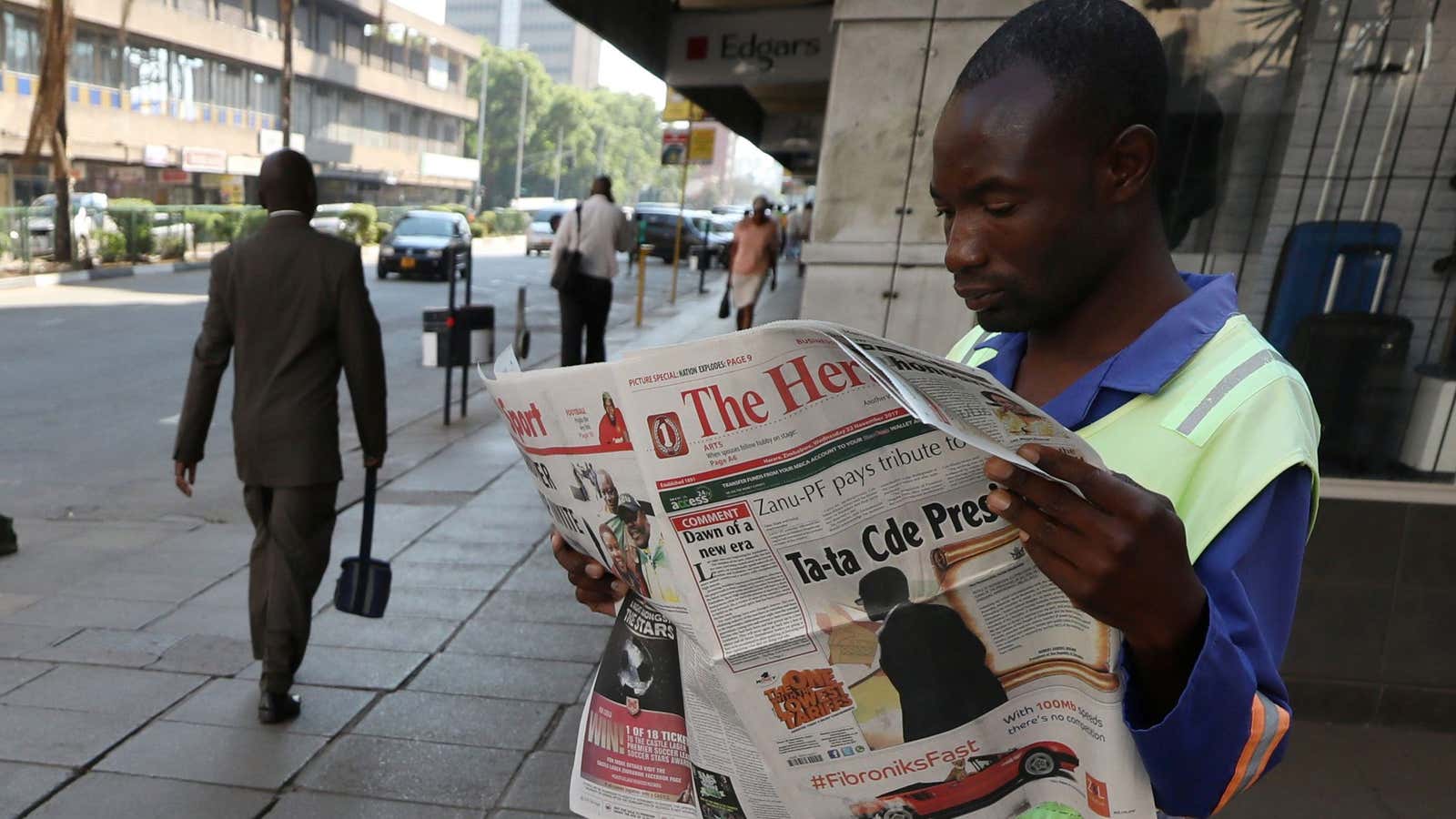Press freedom is often thought of in relation to political pressure. There is more than enough evidence that threats, intimidation and imprisonment of journalists remain a serious cause for concern in Africa. But two recent gatherings on the continent encourage the thinking around press freedom in even broader terms.
One threat that’s getting increasing attention is the lack of media sustainability. This is understood to mean more than just the survival of media. It’s also about access to the resources needed to produce
high-quality, independent journalism that supports a democratic culture, transparency and development in areas of government, human rights and economics.
The pressure on sustainability is a more subtle threat than imprisonment and harassment. But it’s also dangerous in the long run.
The issue was at the forefront of debates at a World Press Freedom Day panel discussion in Windhoek, Namibia, and at a gathering of media scholars from around the world, the World Media Economics and Management Conference, in Cape Town.
In Windhoek the focus fell on journalism’s sustainability in conditions of severe economic uncertainty. In Cape Town, the main focus was on the threat to media sustainability and journalism globally, posed by tech giants such as Facebook, Google and Twitter. Their enabling of “fake news”, aggregation of content and hoarding of advertising spend, formed part of a broader panic about failing media business models.
The sustainability of the news media is a precondition for good journalism in the public interest. So economic questions should form part of discussions of press freedom. And that has implications for media ethics.
The Media Sustainability Index (MSI) conducted by the NGO IREX recently found that media sustainability in the region was on the decline. It found that
financing and media management is the weak link, threatening sustainability and independence… (I)t is clear that business management and sources of funding for the media (…) form the missing foundation for many other aspects of media health and are a cause for concern.
Sustainability fears
South Africa is often considered to be a major media player on the continent. But an important new report by Rhodes University Professor Harry Dugmore shows how fears about sustainability potentially hamstring the country’s media in fully fulfilling its democratic role.
Print media circulation has fallen steeply in recent years. Media organizations are struggling to make money out of the migration of audiences to online platforms. The result, the report shows, has been cutbacks on investigative journalism, shrinking newsrooms and the capture of some media by joint oligarchic and political forces.
Similar trends were found in a draft report presented in Windhoek by the Institute for Public Policy Research. It shows how negative economic conditions in the country, combined with failing business models, have led to a loss of senior journalists, retrenchments and closures of media outlets.
The problem of collapsing business models in Africa is compounded by weak economies and struggling advertiser markets. In such circumstances, media become particularly vulnerable to capture by political interests, unethical practices, such as “brown envelope journalism” or cut corners to produce superficial journalism.
But there remain many African journalists who have courageously weathered economic crises. They can serve as examples to the world. The most recent example was the role South African journalists played in exposing ‘state capture’ by former president Jacob Zuma’s friends, the Guptas.
Digital media
A great deal of hope is being pinned on digital media to provide more avenues for information and citizen participation. There are some inspiring examples of this in Africa. These range from independent news websites such as Groundup to interesting blogs and citizen journalism on mobile platforms.
But digital media is not exempt from political capture, as the Bell Pottinger saga in South Africa showed. It drove the Guptas’ divisive “white monopoly capital” campaign. On top of this, access to digital media is still unequal. Not everyone can afford data costs to access the internet. And the presence of the tech giants can erode independent media’s foothold in Africa.
The challenge is to create models for African media that are sustainable enough to provide journalists with freedom and independence. They must also be relevant to local audiences, and keep the core values of journalism (public interest, truth, human dignity) as their primary goal, rather than chase profits as an end in itself.
This calls for creativity and adaptability, as well as a keen focus on rebuilding trust with audiences and communities.
Suggestions from the conferences included that journalists should immerse themselves in communities, and media houses build relationships with audiences to regain trust. This is especially important in the age of ‘fake news’. Public meetings and events could put media houses in contact with audiences. Digital platforms should be used to meet audiences where they are.
Trust and relationships will be key to charting a sustainable future for news media. If communities trust the media, they can become their allies against political interference, and help support the role of journalists. As CNN’s Christiane Amanpour has reportedly reminded her journalism colleagues:
Trust and credibility are the commodities we trade in.
Herman Wasserman, professor of Media Studies and director of the Centre for Film and Media Studies, University of Cape Town
This article was originally published on The Conversation. Read the original article.
